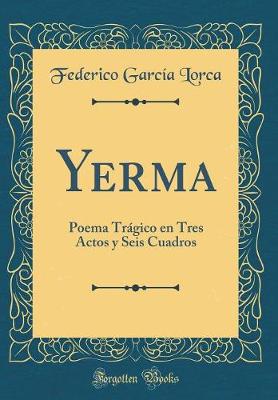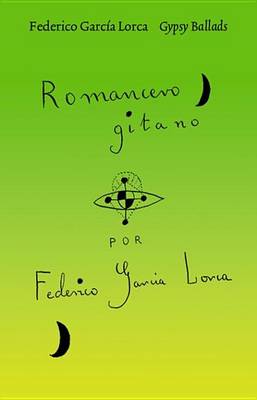Hispanic Classics
2 total works
Yerma: Poema Trágico en Tres Actos y Seis Cuadros (Classic Reprint)
by Federico Garcia Lorca
Published 1 January 1987
The second of Lorca's trilogy of rural dramas, Yerma, is a blend of contrasting moods through which Lorca charts the increasingly destructive obsession of a childless young country wife, and probes the darker zones of human fears and desires. The play's rich mode of expression - a combination of...Read more
The second of Lorca's trilogy of rural dramas, Yerma, is a blend of contrasting moods through which Lorca charts the increasingly destructive obsession of a childless young country wife, and probes the darker zones of human fears and desires. The play's rich mode of expression - a combination of verbal, visual and auditory images and rhythms - is also geared to celebrating sexual attraction and fertility, creation and procreation.
Through his characterization of the play's central figure, Lorca raises the question of women's social status - a controversial question both then and now, and one to which Robin Warner pays particular attention in his critical introduction to the play. He also examines the links between the dramatic structure of Yerma and the importance of cultural politics during the course of the Second Spanish Republic. The Spanish text is supported by an introduction and notes in English, as well as by an extensive vocabulary and section of discussion questions.
Through his characterization of the play's central figure, Lorca raises the question of women's social status - a controversial question both then and now, and one to which Robin Warner pays particular attention in his critical introduction to the play. He also examines the links between the dramatic structure of Yerma and the importance of cultural politics during the course of the Second Spanish Republic. The Spanish text is supported by an introduction and notes in English, as well as by an extensive vocabulary and section of discussion questions.
Translated by Gloria Garcia Lorca, the writer's niece, and Jane Duran, the family friend who became a celebrated poet, Gypsy Ballads is the most authentic version of Romancero Gitano imaginable. In their new translation Jane Duran and Gloria Garcia Lorca have been faithful to Lorca's work, searching out original...Read more
Translated by Gloria Garcia Lorca, the writer's niece, and Jane Duran, the family friend who became a celebrated poet, Gypsy Ballads is the most authentic version of Romancero Gitano imaginable. In their new translation Jane Duran and Gloria Garcia Lorca have been faithful to Lorca's work, searching out original meanings, avoiding overt interpretations, reproducing metaphors, so as to bring to an English-speaking reader the pure power of Lorca's poetry. What is revealed is a kaleidoscope of sensory images, characters and stories. Lorca described his most popular collection as 'the poem of Andalusia ...A book that hardly expresses visible Andalusia at all, but where hidden Andalusia trembles.' Seeking to relate the nature of his proud and troubled region of Spain, he drew on a traditional gypsy form; yet the homely, unpretentious style of these poems barely disguises strong undercurrents of conflicted identity.
This bilingual edition includes revealing insights into the Romancero and the history of the Spanish ballad form by Andres Soria Olmedo; notes on the dedications by Manuel Fernandez-Montesinos; Lorca's lecture on his own book; and an introduction to the problems and challenges faced by translators of Lorca, by Professor Christopher Maurer.
This bilingual edition includes revealing insights into the Romancero and the history of the Spanish ballad form by Andres Soria Olmedo; notes on the dedications by Manuel Fernandez-Montesinos; Lorca's lecture on his own book; and an introduction to the problems and challenges faced by translators of Lorca, by Professor Christopher Maurer.

